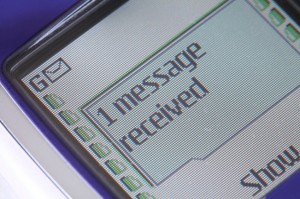 By Allan Lengel
ticklethewire.com
By Allan Lengel
ticklethewire.com
The question is: Were the text messages sent by an undercover FBI agent to defendants in an 18-month gun trafficking sting in the Philippines destroyed by the government or was there merely a technical glitch that prevented them from being saved?
Deputy Federal Defender John Littrell suggests in a court document filed Monday in Los Angeles federal court that the government may have destroyed the text messages. The government, according to Littrell’s motion, claims it was a glitch: that the phone the agent used only retained incoming texts from the defendants, but not the outgoing ones by the agent.
Littrell says he needs the FBI agent’s texts to help prove that his client, Sergio Santiago Syjuco of Philippines and two co-defendants, were entrapped by the agent who he says used humiliaton and threats to get them to help traffick guns to the U.S. The trial is pending.
The case has already stirred some controversy. Littrell in filings weeks earlier alleged that the undercover agent used taxpayer dollars to pay for hookers in the Philippines for himself and the three co-defendants, and that some of the prostitutes where they went were underage. The agent responded in court documents, calling the allegations about the hookers pure nonsense.
On this latest allegations, Laura Eimiller, a spokeswoman for the FBI in Los Angeles said Wednesday night: “The government will respond to the allegations in court.”
In the motion, the defense attorney writes that the government produced as part of the exculpatory evidence, 419 pages of photographs of incoming text messages sent from the defendants to the undercover agent. However, he noted that the government failed to produce any text messages from the agent to the defendant, evidence he says could prove the men were entrapped.
Littrell writes in the court filing:
“The government’s bad faith in destroying the evidence should be inferred based on the lack of any persuasive explanation as to why all incoming text messages were preserved by the government, and none of the outgoing messages.”
“”Because the defense of entrapment will be presented to the jury, the precise contents of the statements of both the defendants and the undercover agent and the context in which those statements were made, will be critical at trial. ”
“On September 11, 2012, co-counsel George Buehler inquired of Assistant United States Attorney Margaret Vierbuchen why she had produced only photographs of incoming text messages from the undercover agent’s phone, and not the outgoing messages. Ms. Vierbuchen responded by stating that the cellular telephone used by the agent preserved only incoming messages and not outgoing
“Defense counsel has discussed the government’s claim with an expert, and the expert has indicated that this is unlikely. The government has offered no other explanation as to why none of the outgoing text messages sent by the undercover agent during his 18 month investigation have been preserved.”
Usually text message on phones show a string of incoming and outgoing text messages.
Littrell also wrote that even if the government was correct in that there was a glitch, it should have realized it and “replaced the agent’s phone with one that does record outgoing text messages in order to preserve what was obviously important evidence. Moreover, because the government preserved the incoming text messages by taking photographs of them as they appeared on the screen of the agent’s phone, why would the government fail to similarly take photographs of the outgoing text messages as they appeared?”
Littrell could not be immediately reached for comment.
Read Defense Attorney’s Motion





